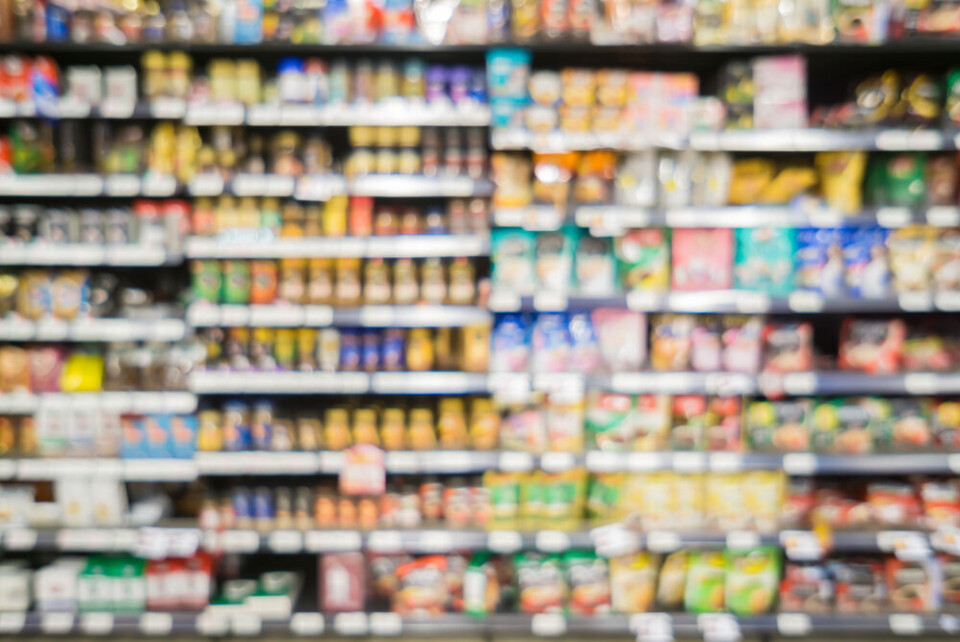-
French boulangeries demand right for staff to work on May 1 so they can open
Artisan bakery owners can work but employees cannot, while certain industrial bakeries are allowed to remain open with workers
-
The magic of mayonnaise: Why a homemade emulsion always woos guests in France
Plus, which shop-bought mayo brand is best?
-
Online ‘anti-waste’ supermarket offers deals on everyday items in France - we test it
Discounts of 10% to 50% available on brand products
‘Cheapflation’ on French supermarket foods attacked by watchdog
Practice sees manufacturers reducing amount - or quality - of ingredients whilst increasing prices

A number of major brands stocking chocolate, sauces, fish, meat, and other products in France have been accused of ‘cheapflation’ by a leading consumer watchdog.
Under ‘cheapflation’ the amount of a product’s ingredient (sometimes the main part) decreases significantly, or is replaced with a lower quality, cheaper and often unhealthier alternative.
At the same time, however, the price of the product increases.
“We have identified examples going back as far as 2016, well before the start of the rise in food prices,” said Foodwatch, the organisation behind the claims.
“The phenomenon is not recent but inflation could have encouraged manufacturers to resort to these practices,” it added.
The brands accused are After Eight (owned by Nestlé), Bordeau Chesnel, Findus, Fleury Michon, Maille (owned by Unilever) et Milka (owned by Mondelez).
Less product, lower quality - but higher prices
Examples of ‘cheapflation’ include the Findus ‘Alaskan hake bordelaise’. In April 2023, the amount of fish in the product fell from 75% to 71%, whilst the price per kilogram rose by 47% (including adjustments for inflation).
Fleury Michon surimi sticks have seen their contents of fresh fish drop by 11% between 2021 and 2023, even though the price per kilogram rose by 40%.
After Eight mints, popular with Britons, have seen the reintroduction of cheaper vegetable fats between 2021 and 2024, alongside a return to using controversial palm oil.
Milka cookies also replaced the use of sunflower oil with palm oil, alongside increasing the price per kilo by 27% between 2022 and 2024.
“With 'cheapflation', consumers are losing out twice over," said Audrey Morice, a campaign officer at Foodwatch.
“Manufacturers are refraining from communicating about recipe changes, which are not displayed on the front of the pack. It's opaque… there is a lack of transparency,” she added.
Read more: Some supermarket bulk buy ‘deals’ are a con, say campaigners
Campaign to stop practice underway
Foodwatch is launching a campaign to stop the practice, putting pressure on the brands as well as their distributors across France, as well as raising awareness of the issue.
These include the Fédération du Commerce et de la Distribution (FCD), Leclerc and Intermarché (major suppliers that are not members of the FCD) and the Association nationale des industries alimentaires (ANIA).
It is also asking brands to be more transparent about changes to ingredients or recipes for consumers.
In terms of inflation, Economy Minister Bruno Le Maire recently said France “is winning the battle,” and that prices should keep falling, after food prices rose around 5.7% between January 2023 and January 2024.
This is significantly lower than the 16% seen in 2023.
The Economy Minister has also said prices of certain key food items including pasta, cooking oils, and coffee, should fall in the coming weeks.
Related articles
Leclerc or Lidl: Which is the cheapest supermarket in France?
Updated: How important is buying French produce to you?
























